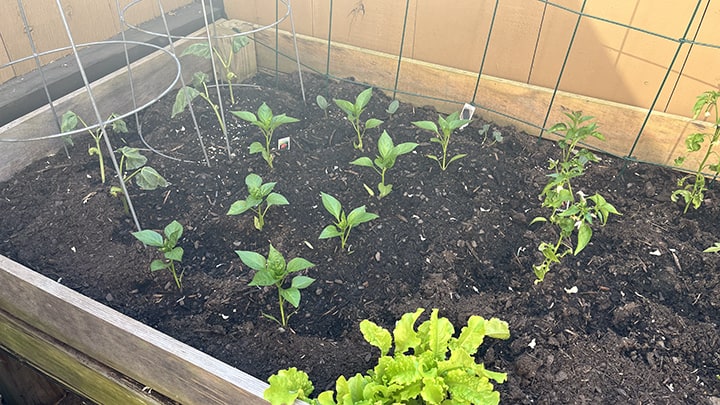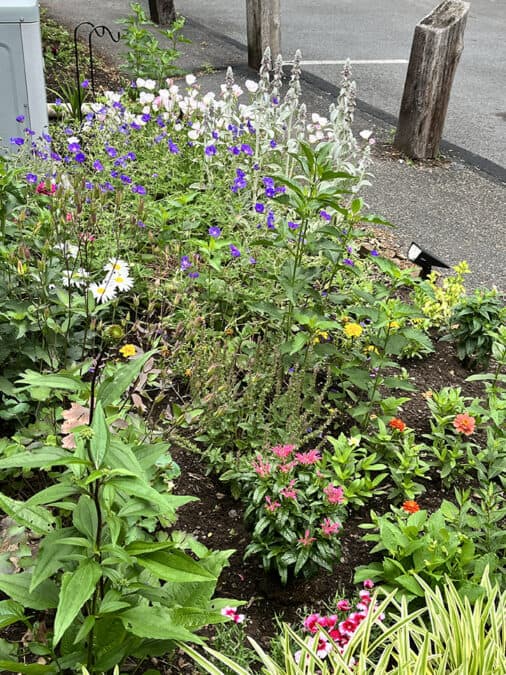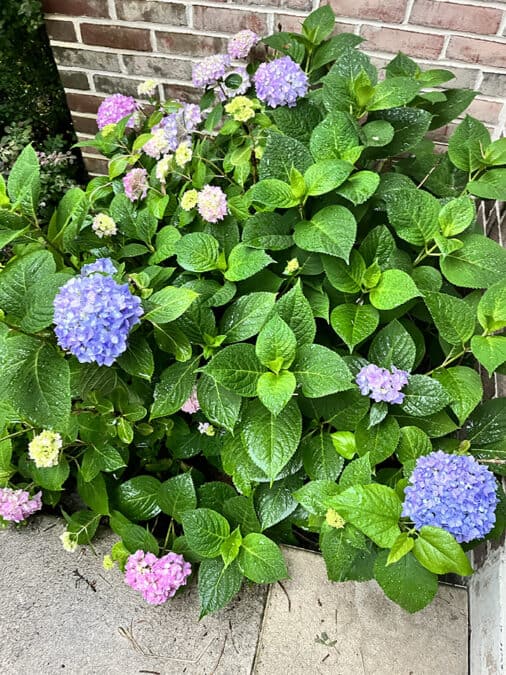“Truly, truly, I say to you, unless a grain of wheat falls into the earth and dies, it remains alone; but if it dies, it bears much fruit” (John 12:24)
I know. In the middle of winter, it is sometimes hard to remember the beauty of the spring.
Even so, though many of us prefer the seasons of nurturing and gardening and growth and beauty, God has purpose in these quiet, still months. In fact, His purpose includes the glamourous concept of … how should I put this? … death.
Death? What? How can death be a part of God’s grand beauty?
John 12:24 says that there is no fruit unless there is death. In fact, I believe our lives are not as impactful until we have experienced death.
Let me give you some of my backstory to explain what I mean.
I am a director of communications for the Baptist Resource Network. I am a doctoral student. I am a church-planter and pastor’s wife. I am a mom. I am a new grandma (“Nannon,” to be more specific). I am a women’s retreat speaker. I am a colleague in the Association of Baptist Publications, the Baptist Communicators Association, and the Southern Baptist Convention. I am a friend, daughter, sister, neighbor. I am …
Exhausted.
And, to get away from it all, I have also tried to be a gardener.

I have not always been an avid gardener. My whole ministry life, instead, has been focused on trying to communicate in beautiful ways as a journalist, graphic designer, videographer, photographer, church communicator, and as a pastor and church planter wife. For years, I have attempted to build things, design things, brand things, write things, and push, push, push all of these things out so churches can benefit from them. It is a never-ending cycle because there is always a new event, a new resource, and a new story that needs to be shared.
And if I am honest, sometimes I get lost in it all. Deadlines end up being my full focus, and I lose me.
Gardening gives me an outlet to detach from everything and to enjoy the beauty of God being in charge. I can pull back and see, if I am faithful to plant the seed, He is faithful to grow it.
Or not. It is completely up to Him.

Systems Strategist Peter Senge once said, “We keep bringing in mechanics when what we need are gardeners.”
In other words, like other people in ministry, I tend to want to fix things or people instead of nurturing them. I feel the pressure of doing things right, right away, and perfectly. It’s all about my performance.
But gardening gives me a different perspective. I can’t push growth. Plants grow at their own pace of grace. When it is exactly the right time, they will bud, and they will bloom. They will produce a colorful garden of beauty to be enjoyed.
And enjoy it, I do! But this year, something happened.
When the first cold front beckoned at our door, I was frantic. No, God! It’s not time for my flowers to die! No, God, they are so beautiful! No, God, we have worked so hard to get here!
Nonetheless, the freezing frost came. And true to a hard freeze, everything died.
I don’t know why, but this absolutely crushed me this year. I cried when I saw my beautiful hydrangeas wilting in death. What was happening in me?
I began to realize the flowers represented the totality of my ministry. Was I frantically holding on to everything or was I willing to let it go, to let it die, so that God can do the work He wanted to do?
Was I willing to live in the pace of grace?
The interesting thing about plants is that as they grow, they develop new seeds within them. It is in the dying process that those seeds are released to the ground, where once spring arrives, there will be more life, not less. The plants will multiply themselves, the beauty will enlarge, and a new season of hope will grow.
In 1 Corinthians 15:36, the apostle Paul reminds us what we sow does not come to life unless it dies. The apostle John tells us that “unless a grain of wheat falls into the earth and dies, it remains alone; but if it dies, it bears much fruit.”
He also put it this way, “Whoever loves his life loses it, and whoever hates his life in this world will keep it for eternal life” (John 12:25).

Like you, I have seen many seasons of death in my life, including the death of family members, friends, and even ministries. Winter is hard. It can be so cold.
But like you, I have had to learn to believe that resurrection is possible. Jesus says, in John 12:32-33, when He is lifted up, He will draw all people to Himself. His own death and resurrection prove to be the ultimate hope to which we can cling… especially in those dark times.
We try to remember that in our new church plant, Anastasis Fellowship Church in Reading, Pennsylvania. In the Greek, “anastasis” means resurrection. We believe that all people can rise up to new life in Christ. But to rise up, we must also be willing to die.
In dying, I have released my future to Him. In dying, I have seen His living hope.
Every now and then, I go check on those hydrangeas. They’re still dead underneath all this recent snow. But I know resurrection is coming. I know it because I have experienced God’s resurrecting power in my own heart.
I know these beautiful flowers will be even grander than before. And in a similar way, I am persuaded, “that neither death, nor life, nor angels, nor principalities, nor powers, nor things present, nor things to come, Nor height, nor depth, nor any other creature, shall be able to separate us from the love of God, which is in Christ Jesus our Lord” (Romans 8:38-39). Amen.